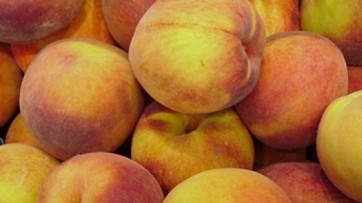Giugliano and Castelvolturno, Fruit and Vegetables Not Polluted

The meeting of the Remediation taskforce to take stock of the activities implemented and those to carry out over the next weeks took place at palazzo Santa Lucia.
Representatives of the Presidency and the Regional Administrations of the Environment, Healthcare and Agriculture, on behalf of Region, and of the Italian National Health Service Institute, the Municipality of Giugliano, the Napoli 2 ASL (Local Health Unit), the Campania Regional Agency for Environmental Protection (ARPAC), the Province of Naples, the consolidated Basin Consortium under liquidation, Sapna (Naples Provincial Environment System) and the Irrigation Consortium of Basso Volturno participated in the meeting chaired by the Commissioner for Remediation of the Area Vasta of Giugliano and Castelvolturno Mario De Biase.
Mr De Biase explained: “We have received from the Italian National Health Service Institute the first results of the possible finding of heavy metals in products. The result confirms what found last June as for Volatile Organic Compunds, when the lack of transmission of pollution from waters to products was verified: vegetables and fruit are far under the limits set by laws”.
“The Institute also analysed soils, proving that only 2 out of 2 thousand hectares are contaminated: the area of San Giuseppiello, owned by the Vassallo family, and already seized, and that one not cultivated under the Masseria del Pozzo landfill. For the first area, I asked, and the Taskforce shared my idea, to the Municipality of Giugliano a ban farming order, to start then remediation activities for both”.
Regional Minister for Agriculture of Regione Campania Daniela Nugnes commented on the positive outcomes resulted from the meeting of the remediation taskforce and stated: “We will act resolutely to ban cultivation and to ensure safety for consumer citizens”.
She added: “Today’s results of the technical taskforce show that the agricultural products of the Area Vasta of Giugliano are healthy and that heavy metals and volatile organic compounds are far under the thresholds allowed by current laws. This is an excellent proof that, when talking about contamination of agricultural products, generalisations cannot be made”.
Ms Nugnes concluded: “Our action to protect good farming in Campania goes on: it is a sector of excellence that plays a pivotal role for the regional economy”.
Over the meeting a schedule of actions has also been set.
Mr De Biase stated: “We keep on meeting our deadlines. Tenders for safety measures implementation go on. In details: Resit is under its awarding stage; the tender for Masseria del Pozzo closed yesterday and 7 submissions were received; Novambiente tender will close on 12 November. Moreover, the tender for the monitoring of 164 dwells on 2 thousand hectares around the areas of landfills has been awarded and the contract is about to be signed”.
Mr De Biase concluded: “Finally, the Consortium of Basso Volturno is available to extend the irrigation network to those areas where the use of dwells has been banned, due to pollution findings”.
